How New Zealand developed an obsession with Spike Milligan’s beloved baddest witch in all the world.
In this five-part series, Gemma Gracewood adventures through the many iterations of Spike Milligan’s Badjelly the Witch to find out why New Zealand loves her the most, and why the U.K. might finally be ready to embrace their long-neglected wickedest witch. (Read Episode Three here)
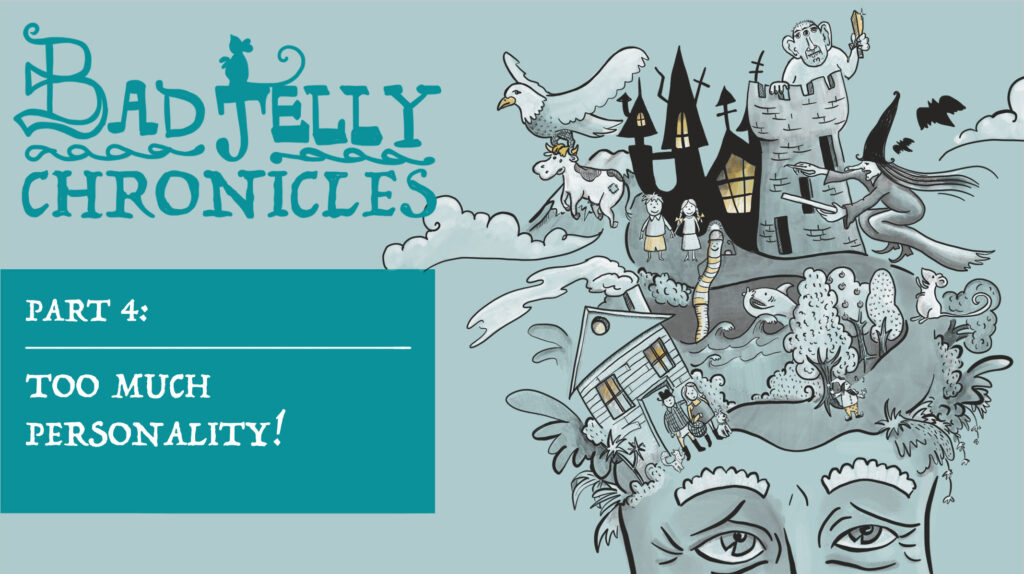
It was in the early 1990s, when the children of the 1970s had started having children themselves. ‘When we opened the bookshop, lots of people kept asking for Badjelly the Witch,’ remembers Ruth McIntyre, who founded Wellington’s renowned The Children’s Bookshop in 1992 with her husband John.
Not long after they opened, John McIntyre ran into Ann Mallinson of Mallinson Rendel, the independent Wellington publisher of Lynley Dodd’s Hairy Maclary books. Knowing that the Hairy Maclary paperback rights were in Penguin’s hands, and that Penguin had acquired Badjelly’s original publisher (Michael Joseph Ltd), John figured a tug on the ol’ publishing grapevine might bear fruit, and asked if Ann might have a Penguin UK contact she could appeal to on behalf of the enthusiastic readers of New Zealand.
Mallinson duly raised the matter with Penguin UK’s children’s publisher Liz Attenborough, who wrote back in July 1994 with alarming news: ‘BADJELLY AND THE WITCH (sic) by Spike Milligan won’t be put back into print. It really is a difficult one, format and handwritten text-wise, but I also think was really a personality book rather than a book that suited many children.’
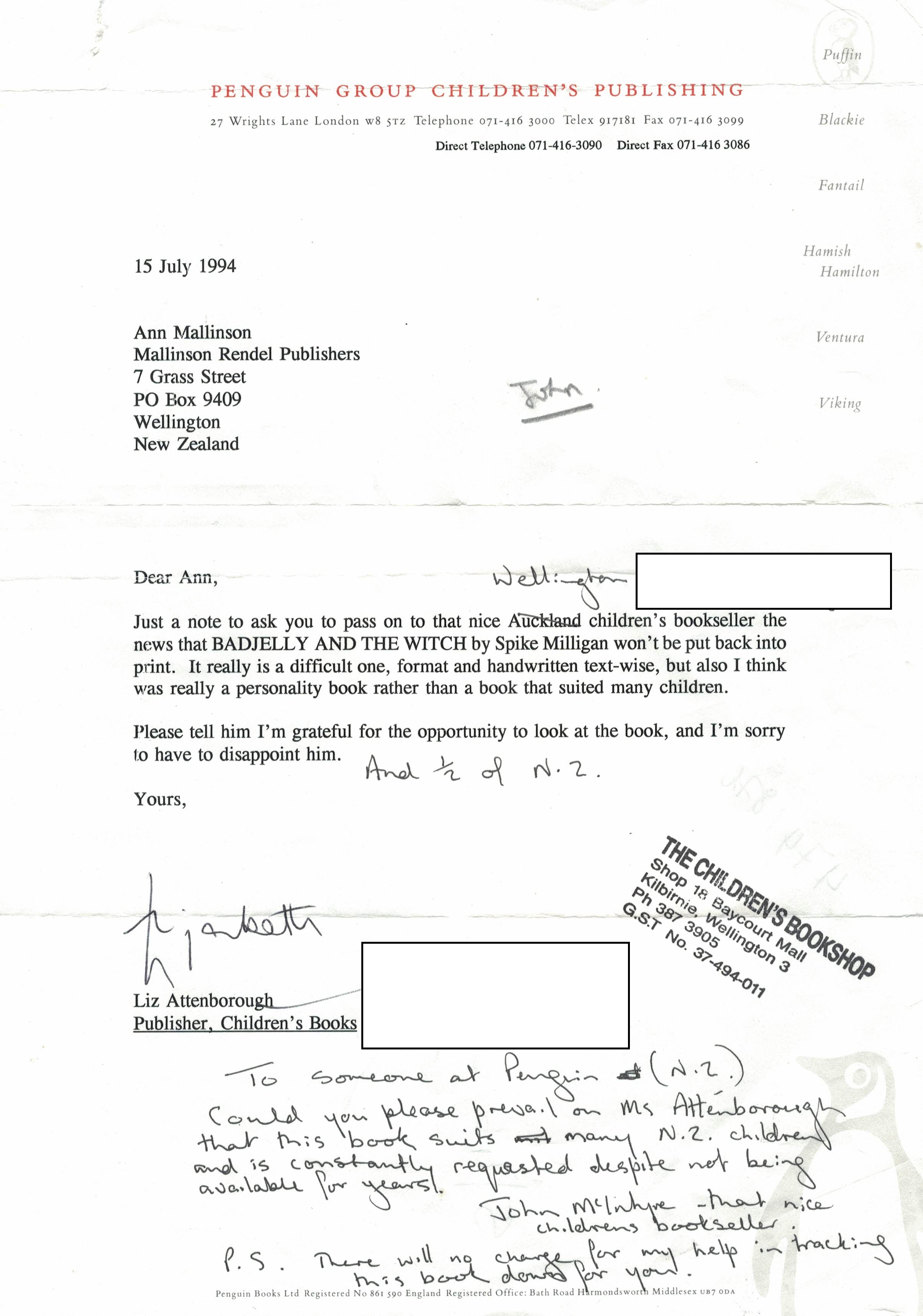
The stream of nostalgic nineties parents rolling their pushchairs into The Children’s Bookshop convinced John otherwise, so he persevered. Writing on Facebook a few years ago, John, who died in 2017, describes approaching Penguin NZ, ‘who said they didn’t have the artwork. I sent them my copy, bought in Greymouth in 1976, and they pulled it apart to scan the pages.’
Ruth picks up the story: ‘I think Penguin NZ sort of realised that they could do it, but they had no plates. John had his copy, which he had bought when he was a teacher. He gave it to them, they ripped it up and did new plates from his old copy, and that’s how it got published.’
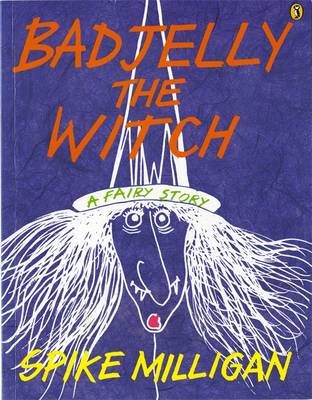
‘John’s version’ was released in October 1994. That’s the purple-cover paperback we’re still able to buy in New Zealand now. Its design is no-frills, rather humble, reflecting its cobbled-together pressing. Penguin’s recent 45th Anniversary hardback is more lovingly produced. Spike’s drawings have been hand-tinted by Vida Kelly, there’s a charming ‘This Book Belongs To……….’ page, and the hardback comes with a CD of Spike’s 1975 BBC reading of Badjelly the Witch.
Never mind what Penguin UK’s publisher had to say about the ‘difficult’, ‘handwritten’ book with too much ‘personality’; Penguin NZ wouldn’t have it any other way. ‘We love all of his idiosyncrasies,’ says Claire Murdoch. ‘We’ve retained his bad spelling and idiosyncratic punctuation exactly as it is, because it sounds and looks like Spike.’
‘We love all of his idiosyncrasies,’ says Claire Murdoch. ‘We’ve retained his bad spelling and idiosyncratic punctuation exactly as it is, because it sounds and looks like Spike.’
All told, Claire says, Penguin has sold at least 100,000 copies of Badjelly the Witch in the last 25 years. That’s an average of 4,000 copies per year, or, one book for every 15 households in New Zealand (not including any sales pre-1994). I wonder how many of those go offshore. Expat New Zealand friends report having to send home for Badjelly after spending hours searching for the book in London.
‘I could not believe Badjelly the Witch is not in print in the UK!’ says Jane Milligan. After the death last year of Spike’s long-time manager, Norma Farnes, the family was comforted to find that, before she died, she had ‘had a bit of a punch-up with a publisher’ who had put out a version of Badjelly ‘with their own drawings in’. Long story short, ‘she took them to the cleaners’, laughs Jane. The upshot: Spike Milligan Productions retains the rights to publish Badjelly’s words and images, in any form.
Since Norma’s passing, things have shifted quite dramatically for the Milligan estate. For the first time in their lives, Jane and her siblings have the key to Spike’s long-held office at Orme Court, a short skip from Kensington Gardens in London. Sisters Jane, Síle and Laura are now the administrators of his papers and doodles and — hold the phone! — many unpublished stories.
Sisters Jane, Síle and Laura are now the administrators of his papers and doodles and — hold the phone! — many unpublished stories.
The Milligan apples did not fall far from the tree. Laura, the eldest, is an author and mum of two. She was ‘the love of Spike’s life’ according to Jane, and has written three books that extend the Badjelly Universe. Síle, a London school administrator and mum of three, is also an artist. ‘Spike shared the DNA with us,’ laughs Jane, then exhales. ‘There’s a lot to do. We’re not even being proactive yet, we’re reacting to requests that are coming in steady and strong’. Norma had run a pretty closed shop since joining Spike in 1966, and had her fingers in every part of the pie. This could be ‘tricky’ for the family, says Jane delicately.
One example: Jane, theatrical to the core, would occasionally suggest mounting a stage version of Badjelly. ‘She went ‘no, no’, and then eventually Dad died and I rang and said ‘Norma, I would love to do this now’. And she said, ‘Darling, I’m doing it myself. Hang on a minute’. And she went off and got a manuscript and started reading me her version of Badjelly the Witch and I was like…’ Jane shakes her head down the telephone.
While the backlog in the office concerns all areas of Spike’s output, Badjelly is the name that keeps coming up. Enter Nathan Graves, again, still a massive fan of Badjelly the Witch, and now living in London. One day a few years ago, he met with a singer who mentioned knowing ‘Spike Milligan’s daughter’. This led to an introduction to Jane, and they got along famously. Nathan arranged for a special platinum disc to be presented to her to celebrate Badjelly’s New Zealand sales; Jane is now planning on giving it to Ed Welch, with whom she has recently reconnected — a happy by-product of having the keys to the office.
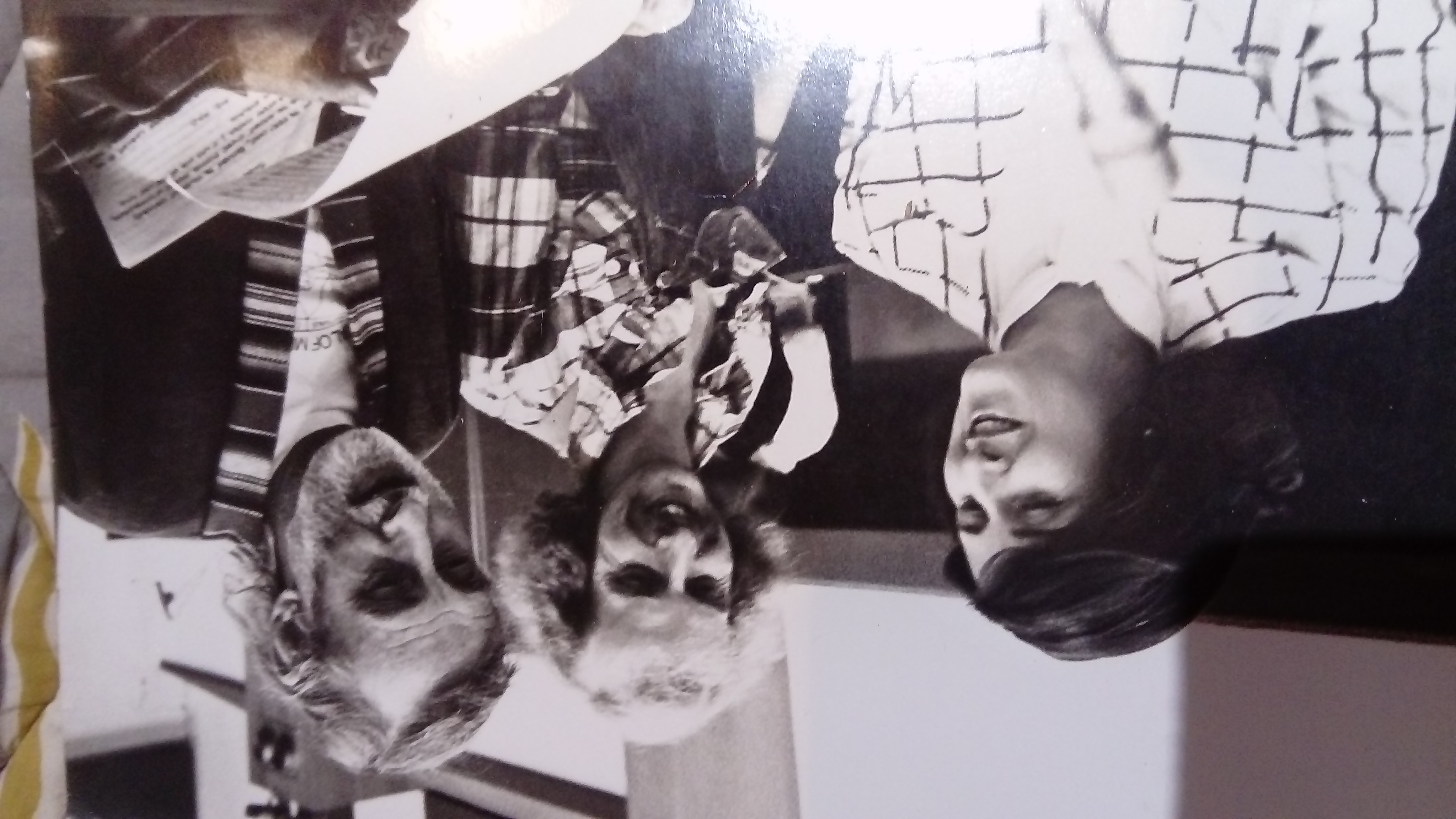
Nathan asked Jane if he could somehow, in some way, be involved in managing Badjelly’s affairs. A no-brainer, for sure. ‘He is so passionate about Badjelly. He loves her so much.’ It feels gloriously apt that a New Zealander is Badjelly’s agent. Nathan, Laura, Síle and Jane are now scheming ways to revive Badjelly the Witch in the UK and beyond, using all the existing Badjelly properties, and exciting new ones. There’s talk of a musical, and the award-winning New Zealand animation company Mukpuddy — maker of charming children’s content like Pipi Mā and Jandal Burn — is developing an animated special based on Badjelly, with the family’s blessing.
The award-winning New Zealand animation company Mukpuddy — maker of charming children’s content like Pipi Mā and Jandal Burn — is developing an animated special based on Badjelly, with the family’s blessing.
Norma Farnes and the people behind Teletubbies once made a short film of Badjelly, back in 2000, when Spike was near the end of his life. The author sits on an opulent armchair in the woods, narrating the tale as his original drawings take to life. You can see it on YouTube, and while it’s very sweet, it lacks the big witch energy that Badjelly deserves. Mukpuddy has wilder plans, with very famous names attached. ‘Spike was a huge inspiration and Badjelly is a story we are incredibibbily passionate about,’ says co-founder Ryan Cooper. ‘We’re honoured that the Milligan family are letting us play in Spike’s fantastical world of teeny weeny tree goblins and horridible witches. We hope we do the legacy proud.’
While Mukpuddy make their plans, there’s already long been a healthy Badjelly industry treading the boards. It’s likely that the best idea for reintroducing Badjelly to her homeland very, very soon is… behind you!
READ EPISODE FIVE: Turning Badjelly’s rich pickings into two wildly successful stage plays, and, in 2020, is it still the season of the witch?
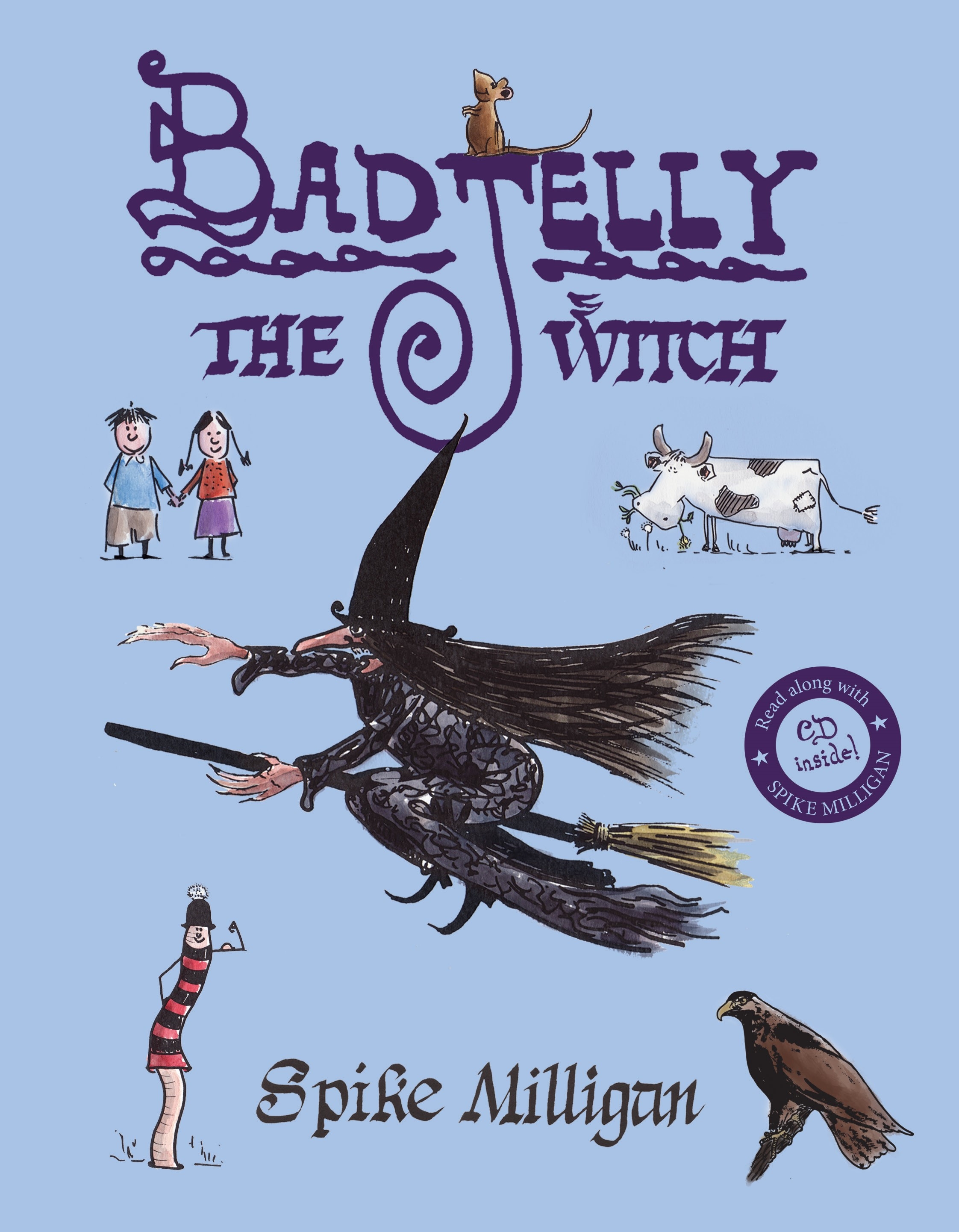

Gemma Gracewood
Gemma Gracewood is a writer, producer and director who peddles in delight. A fifth generation Pākehā New Zealander, she has toured the world in a ukulele orchestra, made award-winning shows about chain-reaction machines, and is currently the editor of Letterboxd. Her favourite saying used to be ‘you can sleep when you’re dead!’ but now she has a four year old and that’s not funny shut up.



